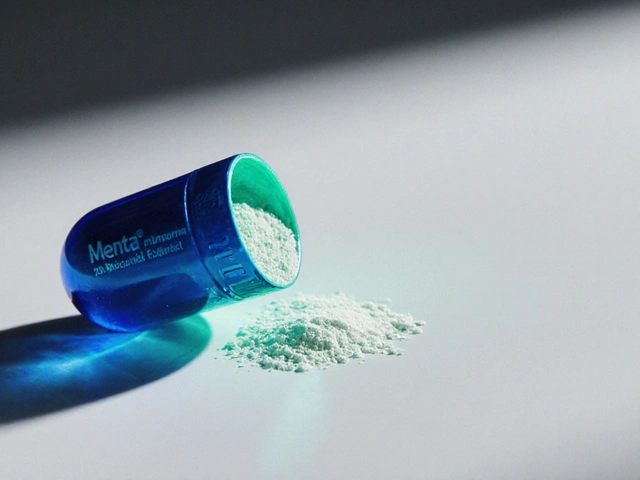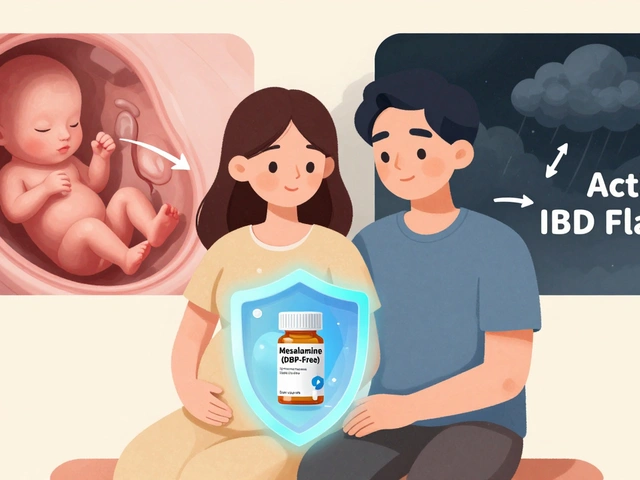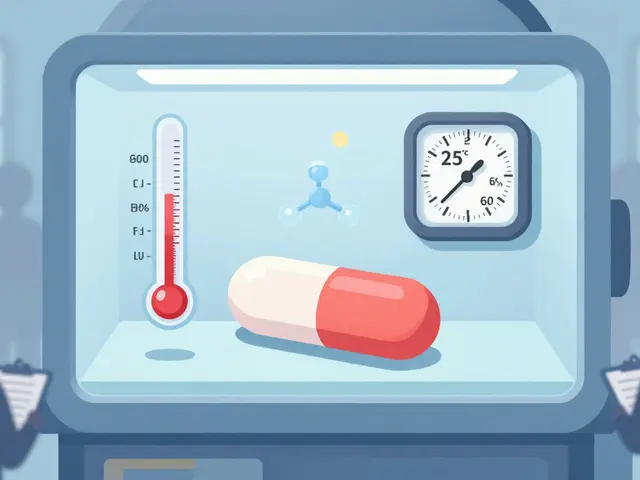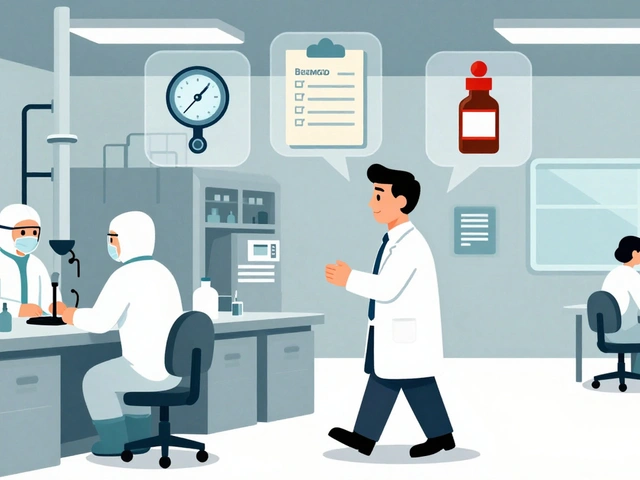Walk down a Perth street and you’ll see people hunched over their phones, not just doomscrolling but figuring out where to get the medicine they need. Maybe it’s a tooth infection, maybe a travel mishap. Ampicillin is popping up more than you’d expect in these searches—especially since old-school antibiotics are getting tougher to find in familiar places. Whether you’re rushing after-hours care or dealing with a post-surf infection, navigating the online maze for antibiotics can get confusing, fast.
Understanding Ampicillin and Why People Buy It Online
So what’s the big deal about Ampicillin? It’s one of the classic penicillin antibiotics that’s been prescribed for literally decades. From urinary tract infections to respiratory woes and even some serious food poisoning cases, doctors used to hand it out like Tic Tacs. Why? Because it works against a broad lineup of bacteria with fewer side effects than many of the newer options. Sounds like medicine gold, right?
But here’s the catch: supply isn’t always steady in local pharmacies. Sometimes stock gets low in Australia. Other times, a prescription from an urgent care visit won’t cut it at your usual chemist—especially if you live in a remote area or you’re flat out late and the pharmacy’s closed. Hospitals started reserving their supplies, leaving ordinary people scrambling. Suddenly, the option to buy ampicillin online isn’t just convenient; it becomes the only viable choice. During the 2022-2024 shortages, Australians saw firsthand how quickly supplies vanish during cold and flu spikes. According to the Therapeutic Goods Administration, reported shortages tripled across common oral antibiotics in early 2024.
Let’s not forget: ordering anything medical online sounds easy until you run up against rules. Ampicillin isn’t a candy. In Australia, it’s not available over-the-counter, so getting it legally involves a bit of paperwork—at the very least, a prescription picture uploaded to your chosen site. Some folks try to skip the lines entirely with international shipments, but this can get dicey (hello, customs). People worry about fake meds, data theft, or just getting ripped off by a convincing-looking website. These concerns aren’t paranoia. Back in 2023, a University of Sydney report found that around 1 in 5 online antibiotic retailers didn’t actually verify prescriptions. Kind of terrifying when you consider the risks.
How to Find and Choose a Trustworthy Online Pharmacy
For anyone who’s been burned by a dodgy online deal, the last thing you want is to gamble with your health. So what makes a pharmacy legit? Look for the signs. In Australia, all proper online pharmacies have to be registered with the Pharmacy Board of Australia and display an AHPRA (Australian Health Practitioner Regulation Agency) number. Scroll down to the footer next time you visit an online chemist—no AHPRA, no deal.
Avoid anything that’s all glowing reviews and zero details about who they are or how to contact them. If a site advertises “Ampicillin without prescription” or flashes impossible discounts, that’s a giant red flag. Authentic sites require you to either mail in or upload your script. The medication should always be from TGA-approved manufacturers, and the packaging must match Australian standards: proper labelling, expiry date, batch number, and info leaflet inside every box. You also want a real pharmacist available for questions—good sites have a chat or call service. Bonus points if you can trace their ABN (Australian Business Number).
Many people get stuck comparing “Australian” pharmacies to international sites that ship here. It’s tempting—they might be cheaper or offer bulk buy deals. But under Australian law, importing prescribed medicines from overseas (the so-called ‘personal importation scheme’) is only legal for up to a three-month supply, and you can only order for yourself or your immediate family. Customs can, and often does, seize packages if the paperwork isn’t perfect. Plus, there’s no guarantee you’ll receive the real thing. In 2024, nearly a fifth of all intercepted medicines in Australia were fake or mislabeled according to the Department of Home Affairs. Doesn’t matter how professional the site looks; if it fails at the last mile, you’re left empty-handed.
- Check for AHPRA and TGA compliance (look for those logos!)
- Read real customer reviews—see complaints, not just praise
- Verify the ABN and street address (Google it if you’re unsure)
- Never trust a pharmacy offering a prescription medication without a real prescription
Money-wise, prices fluctuate wildly. Some Australian online pharmacies offer price matching, but with antibiotics in short supply, sales and bulk discounts come and go. Delivery fees range from free (usually with a minimum spend) to $10-$20 or more for rushed shipping or refrigerated products.

The Step-by-Step Guide to Buying Ampicillin Online in Australia
Feeling a bit lost staring at all those pharmacy sites? Here’s the no-nonsense roadmap. First, get your prescription sorted. If you don’t already have one, that means a telehealth appointment or a visit to your local GP—most won’t charge extra for emailing you the PDF. Once that’s in hand, pick your pharmacy. Start with well-known national chains (like Chemist Warehouse, TerryWhite Chemmart, Priceline, or Pharmacy Online Australia), but don’t ignore independent players with solid ratings—even small ones can give better service when you ask.
Here’s what works in 2025:
- Gather your prescription. Whether it’s a scanned document, a good photo, or an eScript, make sure the info is readable and matches your Medicare/ID.
- Choose a pharmacy. Double-check TGA compliance and privacy policies. Look for a clear checkout flow and detailed product info.
- Upload the prescription. Nearly every site makes you set up a secure login. Upload, attach, or direct-mail your script as requested. Some offer direct integration with e-prescribing systems.
- Answer health screening questions. To catch allergies or dangerous drug interactions, expect a set of questions before checkout. It’s annoying, but it’s for your safety.
- Pick your dosage. Options usually range from 250mg to 500mg capsules or powder for oral suspension. Make sure the box matches what’s written on the script; don’t self-adjust.
- Pay securely. Avoid wire transfers or cryptocurrency. Stick to major debit/credit cards, PayPal, or secure mobile payment options.
- Track your delivery. Australia Post is the main carrier, but some bigger sites use express courier services and provide tracking numbers. Delivery times range from overnight to about six days (WA and rural areas can be slower).
- On receipt, check your packaging carefully. Make sure it’s factory-sealed, matches your script, and isn’t expired. Keep your receipt and the leaflet.
Additional tip: Don’t forget, you can ask for a generic version if your doctor approves—or if you’re paying out of pocket and need to control expenses.
If you hit a snag, don’t panic. Communicate directly with the pharmacy. Most issues are shipping-related rather than dodgy meds. A quick phone call can sort things out, and most legit sites are quick with refunds on lost packages (as long as the script is still valid).
| Pharmacy | Prescription Required? | Typical Delivery Time (Days) | Price Range (AUD) | Refund/Lost Package Policy |
|---|---|---|---|---|
| Chemist Warehouse | Yes | 2-6 | $15-$35 | Full refund if not delivered in 14 days |
| Pharmacy Online Australia | Yes | 2-7 | $18-$39 | Resend or refund, case-by-case |
| International Pharmacy* | Not always | 7-21 | $10-$30 | Rarely guaranteed |
*International sites may risk customs delays or seizures
Important Laws, Safety Tips, and Common Pitfalls
Australian law classifies ampicillin as a Schedule 4 substance. That basically means it’s strictly prescription-only. Even if it’s just your annual tonsillitis, you can’t legally buy it without a doctor’s sign-off. More than a few websites will claim otherwise—but getting caught with prescription meds that haven’t been cleared for personal import can get you in trouble with border force, not to mention risking your health.
Safety isn’t just about rules. The real threat with online meds is counterfeit drugs. Researchers from Curtin University in Perth flagged that up to 25% of antibiotics sold from non-verified international sites had incorrect active ingredients. That’s not a minor detail—taking the wrong dose or a placebo can make infections a whole lot worse. Stick with local, traceable suppliers where you know who to blame if things go wrong.
Here’s where people slip up:
- Trusting “no prescription needed” sites—almost always a scam
- Buying more than a 3-month supply internationally (which border force will seize)
- Using someone else’s prescription (illegal and dangerous)
- Neglecting expiry dates (expired antibiotics lose potency)
- Ignoring drug interactions—especially if you’re on the pill or have kidney issues
Double-check that your chosen pharmacy has a privacy policy—especially in 2025, given all the recent data breach scandals. You want to know where your ID and health details are going, and how securely they’re stored. Any reputable Aussie pharmacy will be happy to explain their data storage and delete your information if you ask.
Final tip: thinking of hoarding a stash “just in case”? Don’t. Doctors, TGA, and pharmacists are all firm—antibiotics only when you really need them, at the correct dose, for the duration prescribed. Using them willy-nilly fuels antibiotic resistance, which is already a major headache in Australia, according to reports from the Australian Commission on Safety and Quality in Health Care in 2024. Neighborhood GPs are seeing more infections that don’t respond to first-line antibiotics than ever before. By sticking to trusted suppliers and playing by the rules, you help keep yourself—and your community—safe. Not to mention, you avoid a heap of legal drama and health risks. Ampicillin’s still here for those who need it. Just make sure you’re getting the real deal, not rolling the dice with a mystery pill from somewhere you can’t even spell.






Peter Axelberg
29 July, 2025 . 20:58 PM
Look, I get it-antibiotics are hard to find, and yeah, the system’s broken when you’ve got a tooth infection at 11 PM and the nearest chemist is 80 klicks away. But don’t let desperation make you ignore the basics. I’ve ordered from legit Aussie pharmacies before-Chemist Warehouse, Pharmacy Online Australia-both required the script, both shipped fast, both had real pharmacists on chat. No magic, no shortcuts. The ones that promise ‘no script needed’? They’re not pharmacies. They’re digital snake oil vendors with fancy logos and fake testimonials. I’ve seen the receipts. One guy got ‘ampicillin’ that was just lactose and aspirin. He ended up in the ER with sepsis. Don’t be that guy. If it feels too easy, it’s a trap.
Monica Lindsey
30 July, 2025 . 22:17 PM
Buying antibiotics online without a prescription isn’t just illegal-it’s morally bankrupt. You’re not a patient. You’re a risk to public health.
Bernie Terrien
1 August, 2025 . 14:57 PM
That ‘international pharmacy’ row in the table? That’s not a pharmacy-it’s a Russian roulette booth with a .com domain. I’ve seen the customs seizures. One guy got a box labeled ‘Ampicillin 500mg’ that contained a half-gram of ground-up chalk and a coupon for CBD gummies. The TGA doesn’t play. Neither should you. Stick to the AHPRA logos or stay sick.
Brandy Johnson
3 August, 2025 . 00:54 AM
While I appreciate the attempt to inform, this guide dangerously normalizes the circumvention of national pharmaceutical regulations. The United States, for example, has strict controls on antimicrobial distribution precisely because of the global threat of multidrug-resistant pathogens. Permitting casual online access-even under the guise of ‘convenience’-undermines decades of public health policy. The notion that Australians are uniquely disadvantaged is both factually inaccurate and ethically irresponsible. This is not a supply chain issue; it is a behavioral one. Patients must be held accountable, not enabled.
jamie sigler
4 August, 2025 . 03:55 AM
Why do I even bother reading this? Everyone knows the system’s rigged. You need a prescription, but your GP won’t see you for three weeks. So you’re stuck choosing between a slow, legal route or a sketchy one that might actually work. No one’s gonna thank you for telling them to ‘just wait.’